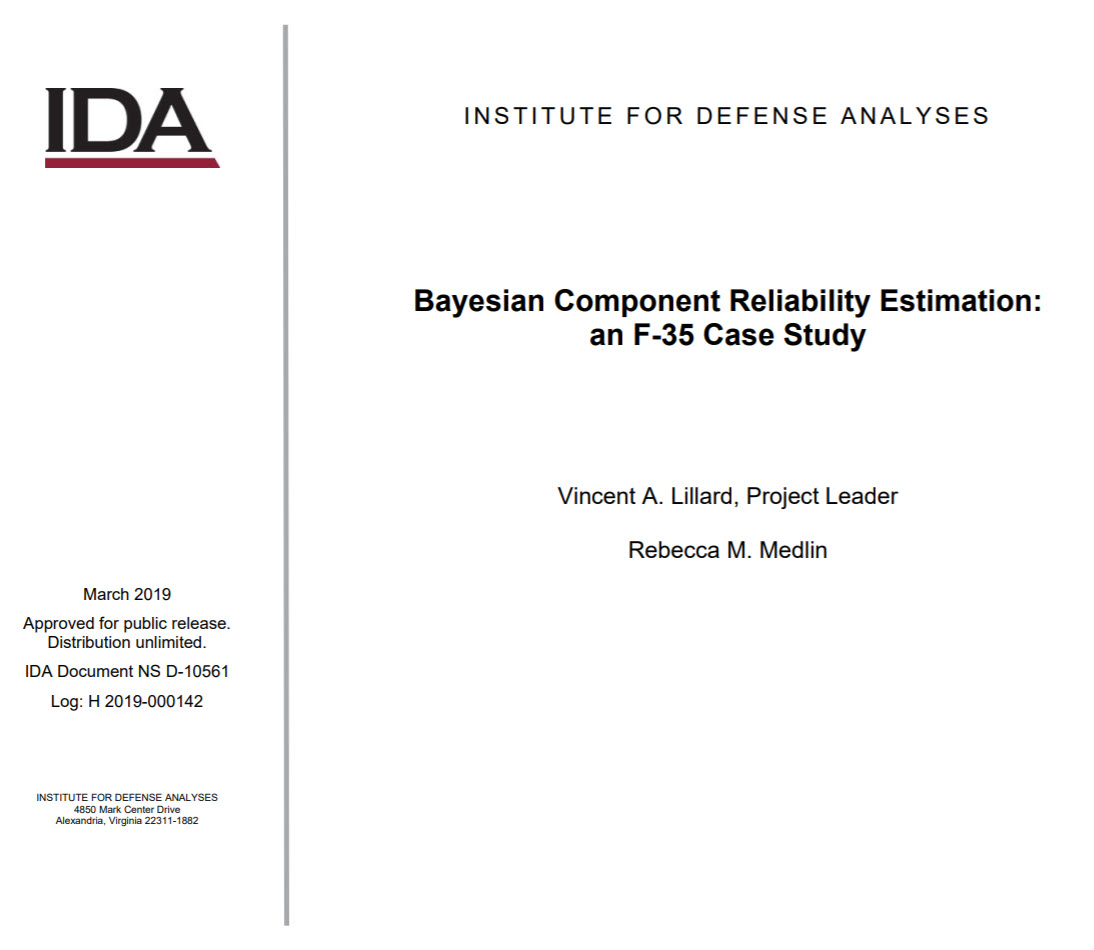A challenging aspect of a system reliability assessment is integrating multiple sources of information, such as component, subsystem, and full-system data, along with previous test data or subject matter expert (SME) opinion. A
powerful feature of Bayesian analyses is the ability to combine these multiple sources of data and variability in an informed way to perform statistical inference. This feature is particularly valuable in assessing system reliability
where testing is limited and only a small number of failures (or none at all) are observed.
The F-35 is DoD
s largest program; approximately one-third of the operations and sustainment cost is attributed to the cost of spare parts and the removal, replacement, and repair of components. The failure rate of those
components is the driving parameter for a significant portion of the sustainment cost, and yet for many of these components, available estimates of the failure rate are poor. For many programs, the contractor produces estimates
of component failure rates based on engineering analysis and legacy systems with similar parts. While these estimates are useful, the actual removal rates provide a more accurate estimate of the removal and replacement rates
the program will experience in future years.
In this document, we show how we applied a Bayesian analysis to combine the engineering reliability estimates with the actual failure data to estimate component reliability. Our analysis technique also allows for us to overcome
the problems of cases where few or no failures have been observed. We are able to show that combining the engineering knowledge of reliability with the observed operational reliability results in both a more informed estimate
of each individual component's
reliability
and a more informed estimate of overall F-35 maintenance costs.
The technique presented is broadly applicable to any program where multiple sources of reliability information need be combined for the best estimation of component failure rates, and ultimately of sustainment costs

